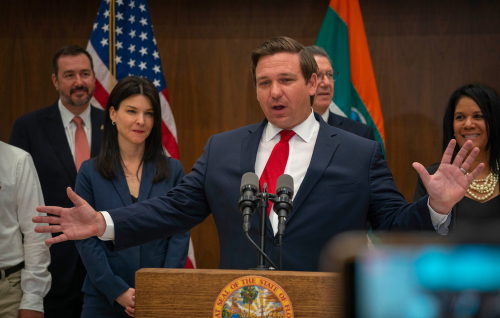
300 KILLED in Days — Genocide in Darfur?
Sudan’s Darfur region faces devastating bloodshed as over 300 civilians were killed in just two days, with humanitarian workers among the dead and accusations of genocide mounting against paramilitary forces.
At a Glance
- The UN reports over 300 civilian deaths in Sudan’s Darfur region during a two-day surge of violence by the paramilitary Rapid Support Forces (RSF)
- Attacks targeted displacement camps and areas near El Fasher, killing aid workers from Relief International who were operating one of the last functioning health centers
- The conflict has displaced over 12 million people since April 2023, with at least 24,000 deaths reported
- The humanitarian crisis has worsened with 25 million people needing assistance and 3.7 million children suffering from severe acute malnutrition
- The UN’s $1.8 billion appeal for aid is only 10% funded as diplomatic efforts intensify to secure peace
Escalating Violence in Darfur
The United Nations confirmed that more than 300 civilians were killed in Sudan’s Darfur region during two days of intense fighting, as reported by UN humanitarian officials. The attacks, carried out by Sudan’s paramilitary Rapid Support Forces (RSF), targeted displacement camps and areas surrounding El Fasher, the capital of North Darfur. Among the dead were 10 humanitarian workers from the NGO Relief International who were operating one of the last functioning health centers in Zamzam displacement camp.
At least 56 civilians were killed in Um Kadadah, a town seized by the RSF on the road to El Fasher. The violence represents some of the worst seen in Darfur since the civil war between the Sudanese Armed Forces and paramilitary forces began in April 2023. The conflict has divided Sudan geographically, with the army controlling the north and east of the country, while the RSF holds most of Darfur and parts of southern Sudan.
Humanitarian Crisis Deepens
The conflict in Sudan has created one of the world’s worst humanitarian crises, displacing over 12 million people and leaving 25 million in need of assistance. Reports indicate widespread hunger and malnutrition, with 3.7 million children under five suffering from severe acute malnutrition and at high risk of death without intervention. The UN refugee agency’s appeal for $1.8 billion in aid is currently only 10% funded, raising serious concerns about the ability to respond effectively to the growing crisis.
“I am shocked and deeply appalled that human rights violations of the kind witnessed in Darfur last year – such as rape, targeted attacks, sexual violence, and mass killings – are being repeated in Al Jazirah state. These are atrocious crimes.” said Clementine Nkweta-Salami.
Similar patterns of violence have been observed in Al Jazirah state near Khartoum, where over 120 deaths were reported between October 20-25. These attacks involved indiscriminate shooting, sexual violence, and looting. The RSF reportedly burned farms, looted markets and homes, causing further displacement of civilians who have fled to already overcrowded regions such as Gedaref and Kassala states.
International Response and Accusations
The United States has condemned both sides in the conflict, specifically accusing the RSF of genocide in Darfur and the Sudanese army of attacking civilians. The UN Security Council has scheduled emergency consultations on Sudan as the conflict approaches its two-year mark. A Sudan conference in London has taken on added urgency following the latest attacks, with diplomatic efforts intensifying to secure protection for civilians and deliver critical humanitarian aid.
“Preliminary figures from local sources indicate that more than 300 civilians have been killed, including 10 humanitarian personnel from the NGO Relief International who lost their lives while operating one of the last functioning health centers in Zamzam camp.” said Stephane Dujarric.
UN humanitarian officials have called for safe access to affected communities and the re-establishment of UN offices in certain regions. Logistical and administrative barriers continue to hinder the delivery of life-saving supplies to the most vulnerable communities. The RSF has claimed that their attacks in areas like Zamzam were targeting Sudanese government fighters, but international observers report that civilians have borne the brunt of the violence.




